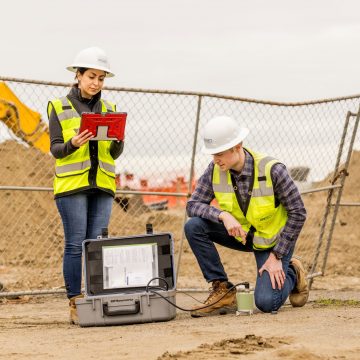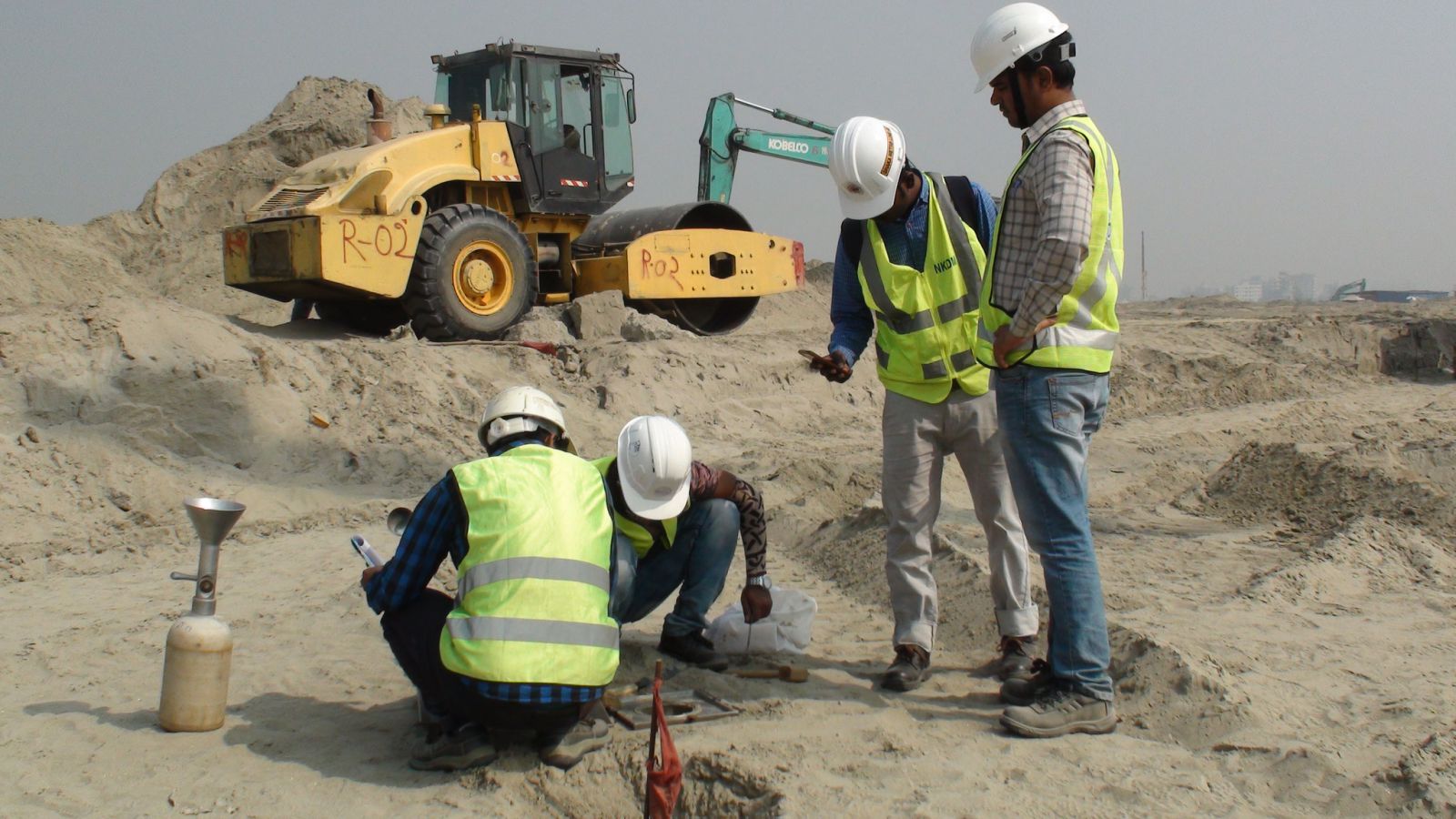Specialist Consulting Engineer Providers for Innovative Infrastructure Solutions
Specialist Consulting Engineer Providers for Innovative Infrastructure Solutions
Blog Article
The Interdisciplinary Approaches in the Geotechnical Industry: Linking the Space Between Design, Geology, and Environmental Scientific Research for Ideal Job Results
The integration of engineering, geology, and environmental scientific research within the geotechnical industry is not simply useful; it is vital for attaining optimum project results. What methods might emerge to facilitate this essential collaboration and boost the efficiency of geotechnical practices?
Importance of Interdisciplinary Collaboration
The relevance of interdisciplinary collaboration in the geotechnical sector can not be overemphasized. Efficient geotechnical jobs need the integration of diverse experience from numerous areas, consisting of design, geology, and environmental scientific research. This cooperation makes sure that all facets of a project are taken into consideration, bring about comprehensive remedies that deal with complex obstacles.
Interdisciplinary partnership fosters technology by making it possible for experts to share understandings and methodologies that might not be noticeable when functioning in seclusion (tailings engineer). By leveraging the strengths of numerous techniques, teams can recognize possible risks, maximize layout procedures, and boost the sustainability of geotechnical tasks. Such collaboration promotes a holistic understanding of site-specific conditions, which is essential for exact analysis and decision-making.
The intricacy of geotechnical projects necessitates a worked with method to problem-solving. When designers, rock hounds, and ecological scientists interact, they can create a cohesive strategy that straightens technical needs with ecological considerations and governing conformity. This synergy not just improves task results but additionally adds to the long-lasting durability of infrastructure. Ultimately, interdisciplinary cooperation is crucial for advancing best methods and accomplishing quality in the geotechnical market.
Trick Roles of Each Self-control
Partnership amongst numerous disciplines is not simply useful; it is important for the effective implementation of geotechnical jobs. Each technique-- engineering, geology, and environmental scientific research-- plays a distinctive yet interconnected duty that adds to forecast efficiency and sustainability.
Geotechnical engineers are mainly in charge of designing foundations and ensuring structural stability. They analyze dirt and rock properties to assess load-bearing abilities, providing vital information for secure building techniques. Their knowledge enables the formula of ingenious services to complicated difficulties.

Ecological researchers analyze the potential influences of construction on environments and water sources. They perform environmental assessments and establish mitigation approaches to reduce negative impacts. By integrating ecological factors to consider, they make certain conformity with regulations and advertise sustainability throughout the job lifecycle.
Situation Studies of Effective Combination
Successful combination of geotechnical disciplines can be exemplified via numerous case studies that highlight the efficiency of synergy in dealing with complicated engineering obstacles. One remarkable instance is the building of the Hong Kong-- Zhuhai-- Macau Bridge, where a collective method involving geotechnical engineering, geology, and ecological scientific research was important. Rock hounds and designers operated in unison to assess the seabed problems and enhance the structure design, making certain security and reducing ecological impact.
An additional impactful case is the improvement of slope security in the San Francisco Bay Area, where an interdisciplinary team incorporated geotechnical evaluation with ecological analyses. By integrating hydrological research studies and geological studies, the team properly recognized possible landslide threats and applied efficient reduction actions, enhancing safety and sustainability.
In addition, the redevelopment of Brownfield sites typically calls for a multidisciplinary method. In one instance in Chicago, partnership among geotechnical designers, ecological researchers, and metropolitan planners caused the successful remediation of infected soil, permitting for the safe makeover of the site right into a community park. These study highlight that interdisciplinary page cooperation not just addresses technological difficulties however likewise fosters cutting-edge options that profit both areas and tasks.
Difficulties in Multidisciplinary Projects

Furthermore, working with timetables and workflows among different groups can be problematic, especially when each technique has special job turning points and deliverables. This imbalance can result in hold-ups and enhanced prices. The obstacle of resource allocation additionally impends large; making certain that specific know-how is readily available at critical points requires cautious planning and insight.
Finally, governing conformity presents another substantial challenge. Each technique might encounter various governing structures, and straightening these needs to satisfy job goals can be complicated and taxing. Addressing these challenges demands solid management and efficient communication strategies to foster cooperation and guarantee that multidisciplinary teams function cohesively in the direction of shared goals.
Future Trends in Geotechnical Practices
As the geotechnical industry develops, emerging trends are reshaping practices to address the obstacles dealt with in multidisciplinary projects - engineer of record. One substantial fad is the increased integration of advanced innovations, such as expert system and maker learning, right into geotechnical analysis and style. These modern technologies boost anticipating modeling and danger evaluation, making it possible for designers to make more informed decisions throughout the project lifecycle

In addition, the fostering of electronic twins and real-time tracking systems is ending up being extra prevalent. These tools promote ongoing evaluation of dirt problems and structural performance, allowing for timely treatments when problems arise.
Final Thought
In verdict, the assimilation of Discover More Here engineering, geology, and ecological science is essential for accomplishing optimum results in the geotechnical sector. Effective instance researches highlight the benefits of this approach, while recognizing the difficulties encountered in multidisciplinary jobs.
The combination of design, geology, and ecological science within the geotechnical sector is not merely helpful; it is crucial for attaining optimal job outcomes. Efficient geotechnical projects call for the assimilation of varied expertise from various fields, consisting of engineering, geology, and environmental scientific research.Browsing the complexities of multidisciplinary projects in the geotechnical sector presents a number of significant challenges.As the geotechnical market evolves, emerging fads are improving practices to resolve the challenges encountered in multidisciplinary jobs. Geotechnical designers are increasingly working together with environmental scientists to guarantee that projects straighten with sustainability goals and comply with regulative demands.
Report this page